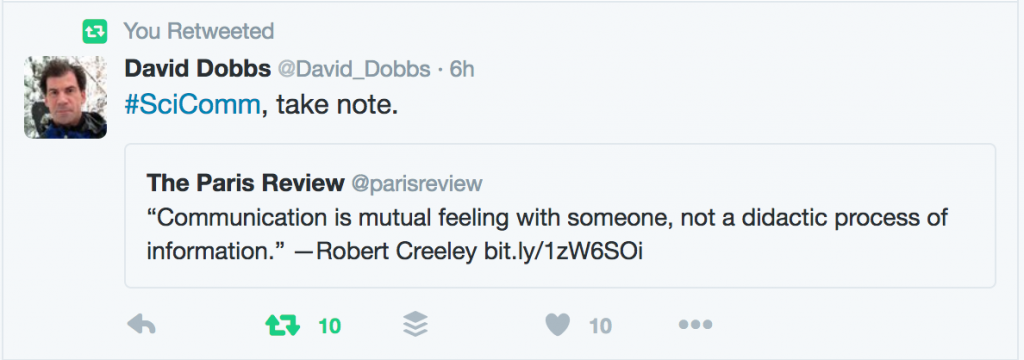Everyone is entitled to his own opinion, but not his own facts. Daniel Patrick Moynihan (attributed: Wikiquotes)
Those of us who are scientists have a tendency to think that if we simply lay out the facts – human activities are causing global climate change, for example – that everyone will listen to us and act accordingly. Tali Sharot and Cass Sunstein remind us in a recent New York Times op-ed that the world doesn’t work that way.
[F]or weak believers in man-made climate change, comforting news will have a big impact, and alarming news won’t. Strong believers will show the opposite pattern. And because Americans are frequently exposed to competing claims about the latest scientific evidence, these opposing tendencies will predictably create political polarization — and it will grow over time.
So if scientists (and other experts for that matter) want the public to make informed decisions about complex issues, it’s not enough for us to put out the facts and expect them to speak for themselves. We need to recognize that there is a science of science communication and work with experts in that field to help us find ways to help us communicate more effectively.
One of the first things we have to remember is that communication is not talking.
Further reading:
Fischoff, B., and D.A. Scheufele. 2013. The science of science communication. Proceedings of the National Academy of Sciences 110:14031-14032. doi:
Sunstein, C.R., S. Bobadilla-Suarez, S.C. Lazzaro, T. Sharot. 2016. How people update beliefs about climate change: good news and bad news. (September 2, 2016). Available at SSRN: http://ssrn.com/abstract=2821919 or http://dx.doi.org/10.2139/ssrn.2821919

